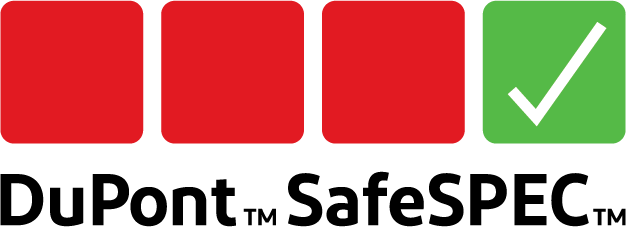DuPont Trains Media Crews in Biohazard Protection
To prepare news teams for the possibility of a flu pandemic or other biohazard emergency, The Fleet Street Clinic appointed DuPont Personal Protection to carry out a training session on proper procedures for “ donning and doffing” protective gear.
The Fleet Street Clinic conducted a seminar for 25 top UK & US journalists, camera and production crew at The Frontline Club in London. Ian Samson, European Training Specialist for DuPont Personal Protection, explained why, in addition to selecting the appropriate protective equipment, it was equally important to check its integrity, ensure that the size and fit was correct, properly put it on, take it off and dispose of it correctly.
The Fleet Street Clinic is responsible for the medical safety of frontline news crews that, by the nature of their job, are often rapidly deployed around the world. To maximise their protection against harmful infectious diseases, dusts, chemicals and other biohazards that may be encountered when covering breaking news stories, The Fleet Street Clinic provides them with appropriate vaccinations, advice, medical supplies, and now personal protective kits, often at a moment’s notice.
Dr Richard Dawood, The Fleet Street Clinic’s Medical Director, is a specialist in Travel Medicine and has worked within the news industry for over a decade, e.g. helping with coverage of the SARS outbreak in 2003 as well as other outbreaks and biohazards around the world.
“Through talking to journalists and others in the news industry, it has become very clear that plans must be now put in place to protect news crews from exposure to flu viruses and other biohazards,” Dr Dawood said.
“The Clinic has conducted considerable research into which products offered the best combination of protection, durability, comfort and fit for the tasks often undertaken, and we have devised basic protective kits that can be adapted to specific environments or risks. The kits, which are available directly from the Clinic, can be handed swiftly to news teams deployed to hazardous environments, with the peace of mind that everything in the kit will provide sufficient protection.”
“The basic biohazard kit includes a protective coverall made of DuPont? Tyvek? or DuPont? Tychem?, a respirator, safety goggles, gloves and disinfectant wipes. We are very grateful to Ian Samson, from DuPont, for his help in designing the kits, and for helping communicate to our clients the importance of correct technique in putting on, using, removing and disposing of protective equipment, as well as the importance of proper training. As part of services by DuPont, Ian offered to carry out the training in a dedicated workshop, and we had an excellent response,” said Dr Dawood.
Ian commented, “It is not just a case of putting on protective gear and hoping for the best. To get the maximum benefit, people need to understand the risks, understand how to put it on in order for all components to work in conjunction with each other, take it off correctly and dispose of it in a manner that will not affect their safety or the safety of their colleagues or family after exposure to hazardous substances. Training is vitally important and we were delighted to provide a training solution for Fleet Street’s broadcasting and print news teams.”
After the presentation, one Fleet Street participant said, “It was a very valuable exercise. Even my journalist colleague who has ‘been there, done that’ thought it was generally useful and informative”.

Resource library
Find technical information, videos, webinars and case studies about DuPont PPE here.

